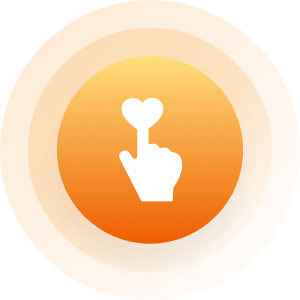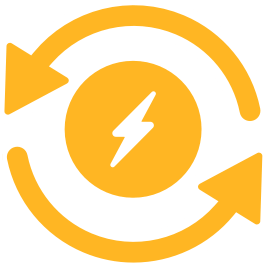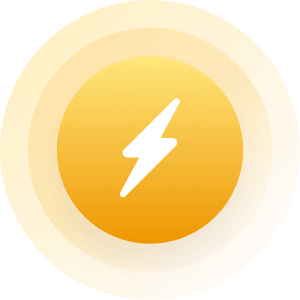| Topic: Google to monitor your mental health | |
|---|---|
|
www.telegraph.co.uk
Thursday 20 September 2018 Google wants to monitor your mental health. You should welcome it into your mind The use of technology to track and treat mental illness is deeply worrying but sadly necessary Next week, Dr Tom Insel leaves his post as head of the US National Institute of Mental Health, a job that made him America’s top mental health doctor. Dr Insel is a neuroscientist and a psychiatrist and a leading authority on both the medicine and public policies needed to deal with problems of the mind. He’s 64 but he’s not retiring. He’s going to work for Google. More precisely, he’s going to work for Google Life Sciences, one of the more exotic provinces of the online empire. He’s going to investigate how technology can help diagnose and treat mental health conditions. Google doesn’t just want to read your mind, it wants to fix it too. It’s not alone. Apple, IBM and Intel are among technology companies exploring the same field. IBM this year carried out research with Columbia University that suggested computer analysis of speech patterns can more accurately predict the onset of psychosis than conventional tests involving blood samples or brain scans. Other researchers theorise that a person’s internet search history or even shopping habits (so handily recorded by your innocuous loyalty card) can identify the first signs of mental illness. Computers can now tell when something is about to go terribly wrong in someone’s mind. That development is striking enough in itself, but the way in which researchers like Dr Insel want to use this new technological power raises even more questions. Wearable technology has been a hot topic in medical innovation for several years now. A growing number of people choose to track their own physical condition using FitBits, Jawbones and other activity trackers, tiny wearable devices that monitor your movements, pulse rate, sleep patterns and more. Once the preserve of obsessive fitness fanatics, “self-monitoring” has the scope to transform healthcare. The ever-increasing number of people with chronic conditions can track and electronically report their symptoms, reducing the number of routine (and expensive) consultations they need with medical staff and ensuring a quicker response to changes that do require direct professional attention. Self-monitoring will also surely play a bigger role in preventive public health. Wearing a pedometer that counts the number of steps you take in a day has been shown to spur people to walk more. What would happen to your consumption of alcohol and sugar if a device strapped to your wrist displayed a continuous count of your calorie and unit intake for the week? Dr Insel is part of a school of thought that suggests this technology is even better suited to mental health. The symptoms of depression, for instance, are inconstant, ebbing and rising without obvious pattern. A short consultation with a doctor once every few weeks is thus a poor means of diagnosis. But wearable technology allows continuous monitoring. A small portable device might monitor your tone of voice, speech patterns and physical movements, picking up the early signs of trouble. A device such as a mobile telephone. Yes, we now live in a world where your phone might observe you to help assess your mental health. If you don’t find that prospect disturbing, you’re either fantastically trusting of companies and governments or you haven’t thought about it enough. But that feeling of unease should not determine our response to technology in mental health. In fact, we should embrace and encourage the tech giants as they seek to chart the mind and its frailties, albeit on the condition that we can overcome the enormous challenge of devising rules and regulations protecting privacy and consent. Because, simply, existing healthcare systems are failing and will continue to fail on mental health. Even if the current model of funding the NHS was sustainable, the stigma that prevents us discussing mental health problems would ensure their prevention and treatment got a disproportionately small slice of the pie. We pour ever more billions into dealing with the worst problems of physical health, and with considerable success. Death rates from cancer and heart disease have fallen markedly over the last 40 years. Over the same period, suicide rates have gone up. Even as the NHS budget grows, NHS trusts’ spending on mental health is falling. If someone with cancer went untreated, we’d say it was a scandal. Some estimates suggest one in five people who need “talking therapies” don’t get them. In a rare bit of enlightened thinking, some NHS trusts are supporting Big White Wall, an online service where people can anonymously report stress, anxiety and depression, take simple clinical tests and talk to therapists. Technology will never be a panacea for mental illnesses, or our social failure to face up to them. But anything that makes them cheaper and easier and more mundane to deal with should be encouraged. If you think the idea of Google assessing your state of mind and your phone monitoring you for depression is worrying, you’re right. But what’s more worrying is that allowing these things is the least bad option on mental health. |
|
|
|
|
|
the above is a repost of
By James Kirkup 6:24PM GMT 28 Oct 2015 and it does make me wonder how far along this is |
|
|
|
|
|
Yet *another* reason why I refuse to get one of those dang phones..
|
|
|
|
|
|
I think this is the worst idea possible.
Knowing how I use google and the websites I load I would be assessed as a serial killer or a terrorist. That is because I use google and websites to look up things for a clearer understanding. If I search ways to commit suicide, I'm not planning to commit suicide. I'm wondering about all the different ways the act might be accomplished. Then I have a basic understanding of the subject matter to aid me in discussions. People actually live in the real world. While it might seem like someone is on their phone all the time, they're really not. There's a lot of BS and facetious interactions online. In other words, a fantasy. Few create a true personification in their online activities. Therefore, any assessments made from inaccurate data will be inaccurate. Garbage in / Garbage out. America’s top mental health doctor should realize this? This could potentially harm more people than it helps. |
|
|
|
|
|
Edited by
I_love_bluegrass
on
Sat 09/22/18 01:31 PM
|
|
|
After the Casey Anthonthy thing..I *did* look up "chlorofom"..
I looked up "chloral hydrate" after I heard about it on a Marilyn Monroe biography. I have looked up poisons, after reading about how they used to be so common in households that people regulary offed people with them..because i was curious about that..and what their purpose was that people had them to start with. Does any of that mean I wanted to use any of those things on myself or someone else? NO.. Like you Tom4Uhere...I am just a really curious person...and would hate to think my weird, strange, and esoteric interts/ searches would be a red flag for something. P.S...The ONE time I was considering suicide back 23 years ago I told NO ONE..didn't talk about it.. I would just have done it without "broadcasting"it... |
|
|
|
|
|
Peachy, google wants to access the mental health of people. What business is it of theirs what I look at? If I'm surfing the web and see something that peeks my curiosity, and I explore different aspects of a subject, is that supposed to make me mentally deranged? I'm no more deranged than their doofus employees. As told by seeing them in a meeting covered by a news channel last week. I wasn't wearing a beany with a propeller on it. They were.
I hardly think that boxcar graffiti says I'm screwed up, if I think it looks interesting. I'm actually quite impressed with how they can blend the paint, with spray bombs. If I'm curious about seeing some sort of sexual voyeurism getup, it doesn't mean that I participate in that. Who is really crazy or nosey? Google. |
|
|
|
|
|
What a load of B.S. its just the drug companies masking themselves as angels in order to make more profits, and produce more people who are easy to push
|
|
|
|
|









